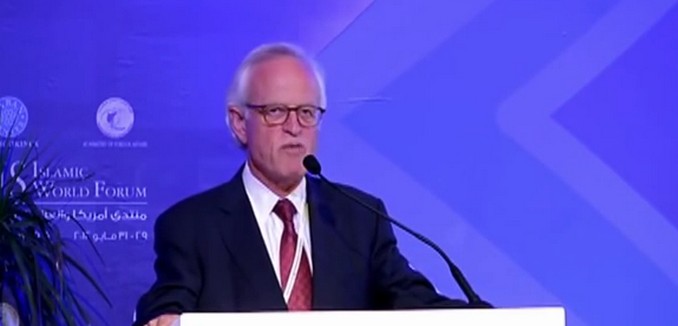A report in The Washington Post yesterday raised new questions about the influence Qatar exerts over the Brookings Institution, a prominent Washington think tank, to which the emirate has committed over $21 million since 2011.
While Brookings claims that Qatar’s funding hasn’t compromised its researchers’ independence, an unnamed Qatari official was quoted as saying, “[w]e think of the conferences as our aircraft carriers.” The conferences refer to those sponsored by the think tank.
The Post also quoted an anonymous Israeli official.
One senior Israeli official, who spoke to The Post on the condition of anonymity because of the sensitivity of the subject, said Brookings’s funding from Doha “has definitely caused some parts of the [Israeli] government to look skeptically on the work of Brookings.”
“It is still widely seen as the leading think tank, or one of them, in Washington,” the official added. “But it definitely makes you look at the institution differently.”
Qatar’s relationship with Brookings came under scrutiny following an expose in The New York Times in September. Following up on the report in the Times, Middle East analyst Lee Smith asked “why in the midst of Operation Protective Edge this summer did [Secretary of State John] Kerry seek to broker a Qatari- (and Turkish-) sponsored truce that would necessarily come at the expense of U.S. allies, Israel, and the PA, as well as Egypt, while benefiting Hamas, Qatar, and Turkey?” Might Kerry have been influenced to work with Qatar by Martin Indyk, the head of Brookings’ foreign policy program, who had served as Kerry’s special envoy to the Middle East?
Smith also pointed out that as a recipient of Qatar’s largess, Indyk had reason to be viewed suspiciously by both Israel and the Palestinian Authority:
Of course, Hamas, which Qatar proudly sponsors, is a problem not just for Israel but also the Palestinian Authority. Which means that both sides in the negotiations that Indyk was supposed to oversee had good reason to distrust an American envoy who worked for the sponsor of their mutual enemy. In retrospect, it’s pretty hard to see how either side could have trusted Indyk at all—or why the administration imagined he would make a good go-between in the first place.
In addition to funding academic institutions like Brookings, Qatar is also seeking to burnish its image by hosting the 2022 FIFA World Cup. Ben Cohen, in The Fruitful Game: How Qatar Uses Soccer to Polish Its Image, which appeared in the October 2014 issue of The Tower Magazine described how Qatar initially got involved in soccer:
By readily demonstrating their seemingly bottomless largesse, the Qataris help themselves out as well. Until the early part of this decade, it’s safe to say that most soccer fans rarely, if ever, gave thought to the tiny Persian Gulf monarchy that has been ruled by the al-Thani family since the middle of the nineteenth century. But in 2011, in an extraordinary public relations coup, the Qataris began a commercial relationship with FC Barcelona, the Catalan champions of the Spanish league, who were then at their masterly peak.
The Barcelona deal was an eyebrow-raising arrangement between a wealthy, conservative petrostate and a soccer club steeped in left-wing politics and Catalan nationalism—until the Qataris came along, Barcelona steadfastly refused commercial sponsorship of their shirts, displaying instead the logo of UNICEF, the United Nations Children’s Fund. Cannily, the Qataris opted to spend their $40 million annual sponsorship of Barcelona through the Qatar Foundation, ostensibly an educational and community organization created in 1995 by the then-Emir, Sheikh Hamad bin Khalifa al-Thani. Everybody won: Barcelona retained their illusory non-profit image while getting a serious injection of cash, and the Qataris reveled in a bonanza of positive publicity.
[Photo: qatarconferences.org channel / YouTube ]




